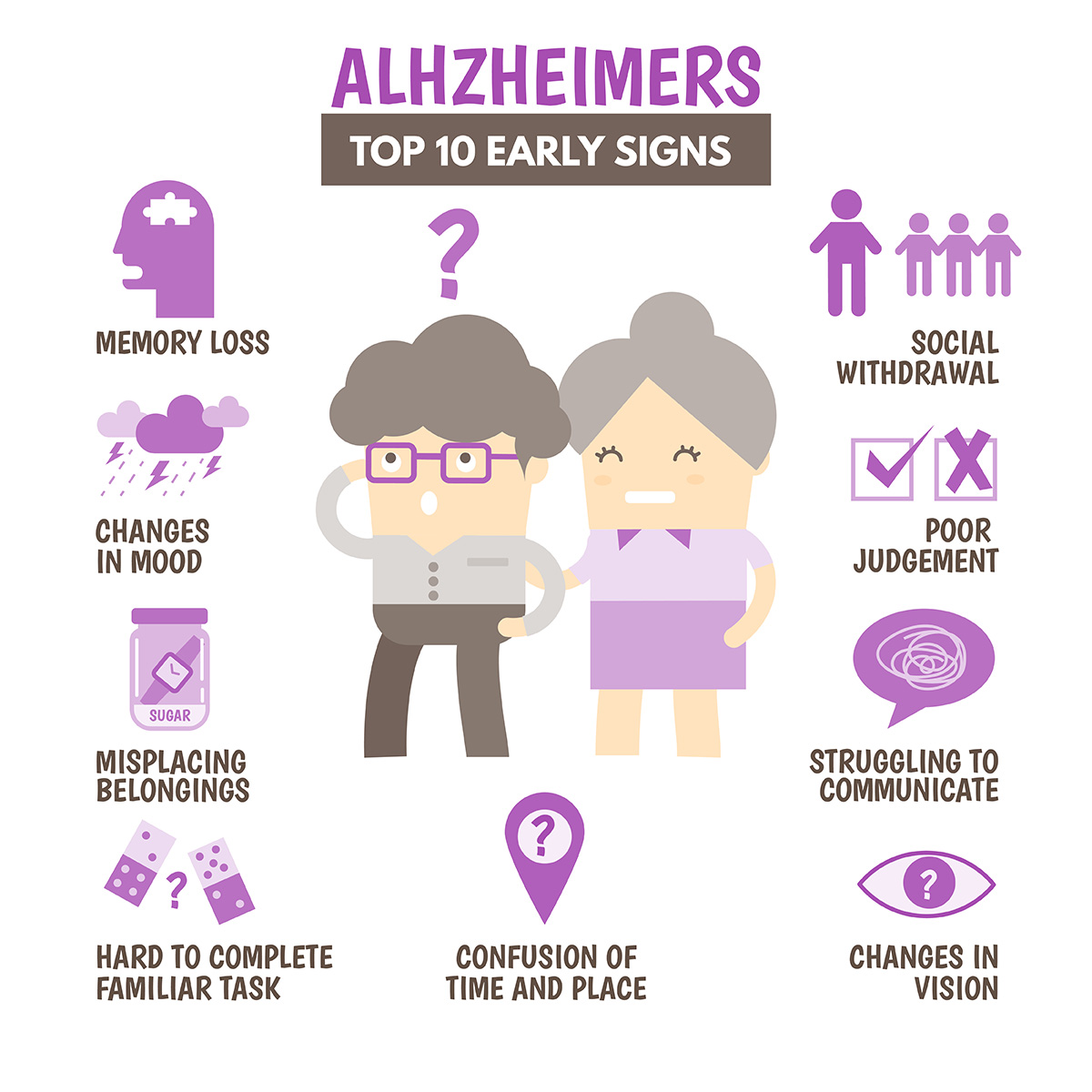It is alarming at this point the growth rate of neurodegenerative diseases, in both young and older people. Take Alzheimer’s Disease, for example, it is highly known for being related to aging but now knowing the underlined link it has type II diabetes the concern grows even bigger. Though largely targeting persons in mid-60s and beyond, various factors were contested as the potential causal factors including genetics, infections, age, etc. However, the actual cause is still unknown.

It is the most common form of dementia and among the top ten leading causes of death in the United States.
The direct cause of Alzheimer’s is still unknown but various factors that contribute to several of its symptoms have been identified, which is very helpful in practicing prevention.
Symptoms
Amongst the most common symptoms of AD, including memory loss, confusion, mood fluctuation, and others. These symptoms were found to be largely caused by the impairment of insulin regulation, which further causes neuroinflammation that results in neurodegeneration in multiple regions of the CNS.

In the study reported by Proceedings of the National Academy of Sciences, researchers used a novel mouse model to understand the impact of insulin resistance in the occurrence of the symptoms above. This was done by blocking the expression of insulin receptors and related Insulin Growth Factor1, critical regions of the brain for learning, memory, and mood.
The regions targeted were the amygdala and the hippocampus, to study effects on glucose, anxiety, and cognition. The defects observed were largely related to the impaired expression of GluA1 NT.
In a review article, Insulin Signaling Pathway and Related Molecule, insulin resistance’s effect on AD is further explained to the way it causes neuroinflammation and neurodegeneration. Key players here include the GSK3-b which impacts positively in the formation of pro-inflammatory cytokinesis, such as IL-6, that bind to stress-activated cytokines, which inhibit the phosphorylation of tyrosine in IRS. This cause an impaired insulin regulation.(Akhtar, 2020)
What now?
Uffda! The point is, it is important that as a society we take major steps to practice preventative methods, to largely avoid risks of type II diabetes which has been shown to increase the risks of AD. This can be done by adopting a healthier diet, exercises, developing means to keep the brain active.

Moreover, there have to be better ways to develop means to accommodate those who have AD and ease them in that process. Help them with day-to-day activities, promote muscle memory (playing piano) keep reminders for their memory and help them keep in touch with their loved ones.
Caregivers need care too!

This attention is necessary as well to the caregivers of the people with AD. Given the contested symptoms that AD patients have, it is very frequent that they may get physical or really disrespectful to their caregivers. This can eventually take a toll on one’s mental health, and physical health, which makes it necessary to create a support system for caregivers to keep them grounded and feel appreciated.